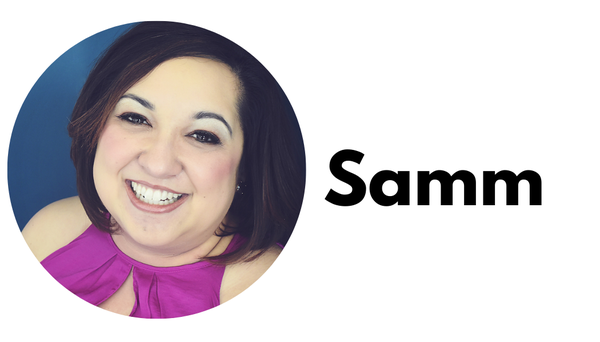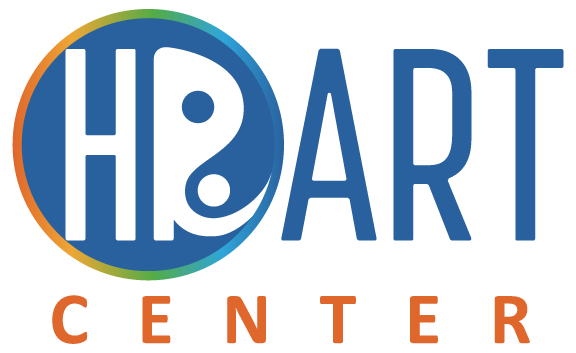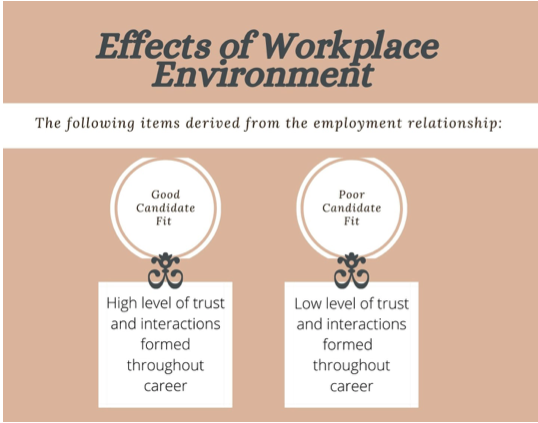Dear HRart workers,
Grace Carlsen is a former student of mine who is sharing her series of very potent essays with us, and today I’m sharing her final essay in this series. I hope you enjoy the following essay by Grace: “The Effect Your First Position Can Have on the Rest of Your Career”.
Look back at your first position in your career path.
How were you taught to interact with others?
What degree of trust did you have going into the position?
Did you still have that level of trust leaving the position?
How were you taught your sense of independence?
Knowing the answers to these questions can give you a better understanding of how your values carried on into your career now. According to Erikson’s Stages of Psychosocial Development, one’s experiences, especially within entry-level positions, will influence one’s personality and social development into senior-level positions. While the 8 stages represent the development from childhood to adulthood, it also serves as an explanation for the development through the professional career path. For a description of each stage of Erikson’s Stages of Psychosocial Development, please refer to this link.
Through working with Leadership Arts Associates (now called The HRart Center), I was able to have conversations with professionals across the country about their experiences within the HR field. Through the conversations, I started to notice the effect that one’s entry-level position fit had for the rest of their career. From these conversations, I was able to make a correlation between how well the company fit is and the future long-term effects:
| (Source: https://rapidbi.com/internal-and-external-factors-that-impact-the-employment-relationship/) |
In other words:
↑ Candidate Fit = ↑ Trust and Interactions with Coworkers
↓ Candidate Fit = ↓ Trust and Interactions with Coworkers
Based on this correlation, I had a better understanding of how one’s first position can affect their professional career. The personal experience gained and candidate match can have a long-term impact on interactions and the trust that is built within their professional career. If a strong relationship has been formed with an employer, it will have a positive long-term effect on the person’s career. This can also be said if someone is disappointed with their experience at their first position. If either party can not recognize the poor candidate fit, it will waste time and money. From my discussions, I saw two examples of the correlation between candidate fit and the effect of one’s long-term career:
- The first professional I spoke to discussed their experiences of working at an inclusive environment that the entry-level position was able to provide. Based on this entry-level experience, a high level of trust and the interactions formed continued throughout their professional career.
- The next professional that I spoke to who also started within the same industry ended up losing their trust based on their experiences. While they also learned a lot, they learned what not to do when working with the community. Their expectations were not met and they were taught interactions that they do not support. Due to this, they will not be working within the industry again.
As shown through the Erikson’s Stages of Development, one’s experiences can carry into future stages of professional settings. As shown within these two examples, while one professional had a positive experience within their first position that helped them learn about HR practices, not everyone will be as fortunate. One’s first position can teach a person a lot about working within the workfield. With that, recruiters should be cautious hiring employees for their first position out of schooling and just entering a new career path. The HR department encounters a strong candidate fit into the culture of the company to promote success. If the HR department (and/or the organization) is unable to do so, where is the missed connection?
So where do we go from here?
One way to ensure a positive experience from an entry-level job is to have a solid candidate fit. As mentioned, finding a candidate that is a good match for the company will be beneficial not only for the organization but for the candidate as well. It’s no secret that everyone wants to be a part of a company that inspires them. I know that this is mentioned a thousand times in the HR field, but it is true: hiring the right people is key. Look out for signs that make a good candidate match within your company. Instead of me telling you how to figure out if a candidate is the right fit for your company, this HR professional can better inform you on how to seek out the correct candidate match.
We all know that the goal within recruitment is to have a good candidate fit. I do not have to tell you that. Although, the benefits of having a strong candidate match is having an employee that is set up for success. This will create an HR employee that has a strong understanding of trust and empathy for their coworkers and community members. If an employee is taught how to interact with others with kindness, they will bring that into their next stage into their career. This is this discussion of “improving” the HR field. If we want to ensure a long-lasting impact. THIS is how we do it.
But this is only the tip of it.
Moving forward, how can you build a trustworthy relationship?
Moving forward, how can I help improve the communication?
Moving forward, how can we construct an understanding work environment that encourages long-term success?
Only then will we be able to see change.
About Grace: Grace Carlsen is a recent graduate of York College of Pennsylvania. As a Human Resource Management major, her focus in HR is in employee relations, DEI initiatives, and recruitment. In the spring, Grace was the Research Intern at The HRart Center. Grace is interested in DEI to help companies better meet the needs of employees and to respect the perspectives of employees.
Thank you for your perspective, Grace. Now, let’s get to work improving our our workplaces so that they are inspiring places to be!
Sincerely,

p.s. This blog post was adapted from the From the HRart fortnightly newsletter. I invite you to subscribe!
Cover Photo by Bady Abbas



